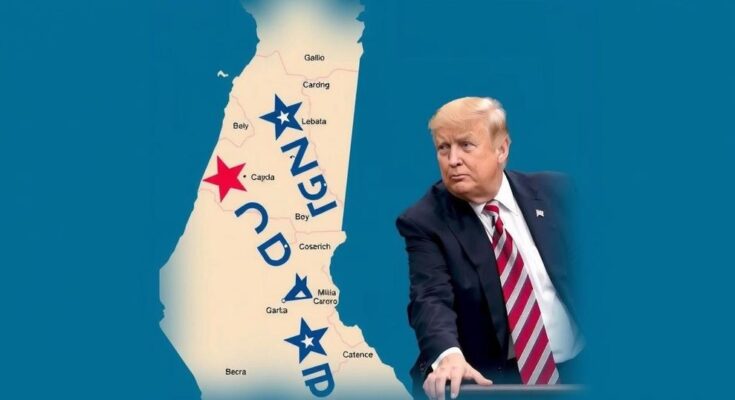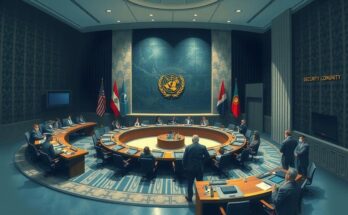Steve Witkoff, appointed as Trump’s Middle East envoy, is facilitating discussions for a ceasefire and hostage negotiation in Gaza. Concurrently, Iran is dispatching fighters to support Assad in Syria, raising concerns about their effectiveness. Amnesty International has accused Israel of genocide against Palestinians amidst ongoing military operations. These developments underscore the urgent need for diplomatic engagement in the region.
In a significant diplomatic move, President-elect Donald Trump’s newly appointed Middle East envoy, Steve Witkoff, has initiated discussions with key leaders in Qatar and Israel aimed at revitalizing efforts towards achieving a ceasefire in Gaza and negotiating a hostage deal. This initiative follows Witkoff’s appointment to the special envoy position on November 12, indicating a proactive approach to address the escalating conflict in the region. Meanwhile, Iran has been reported to send regional fighters, including members of Hezbollah and Iraqi Shiite militias, to bolster Syrian President Bashar al-Assad’s regime amidst renewed challenges to his authority from Islamist factions. Analysts express skepticism regarding the capabilities of these forces to effectively alter the course of the conflict given the depletion of Hezbollah’s resources due to previous engagements. Additionally, Amnesty International has issued a grave report accusing Israel of committing acts of genocide against Palestinians in Gaza, thus intensifying global scrutiny and debate surrounding Israel’s military actions, which have resulted in extensive civilian casualties since the conflict reignited following the Hamas-led attacks on October 7, 2023. As discussions surrounding hostages taken by Hamas continue, the humanitarian crisis in Gaza remains at the forefront of international concern.
The ongoing conflict over Gaza has escalated significantly since the Hamas-led attacks on October 7, 2023, wherein militants perpetrated violence resulting in substantial civilian casualties and hostages being taken. In response to this crisis, Israel has engaged in military operations claiming the need for self-defense. The backdrop of the Syrian civil war further complicates this regional dynamic, with Iran’s support of the Assad regime highlighting ongoing geopolitical tensions within the Middle East. Various humanitarian organizations, including Amnesty International, have sparked significant controversy by labeling the action of Israel as genocidal, galvanizing discussion about the nature of the military operations being executed in Gaza.
In summary, the current situation in the Middle East reflects heightened diplomatic efforts to achieve peace amid ongoing conflicts exacerbated by military confrontations and allegations of humanitarian violations. The involvement of Iran in the Syrian theater of conflict and the critical position of the United States in negotiating ceasefires and hostage situations underscore the intricate web of interests at play. The charges of genocide against Israel by prominent organizations present a challenging narrative that demands attention and action from the international community as the humanitarian crisis intensifies.
Original Source: www.washingtonpost.com




